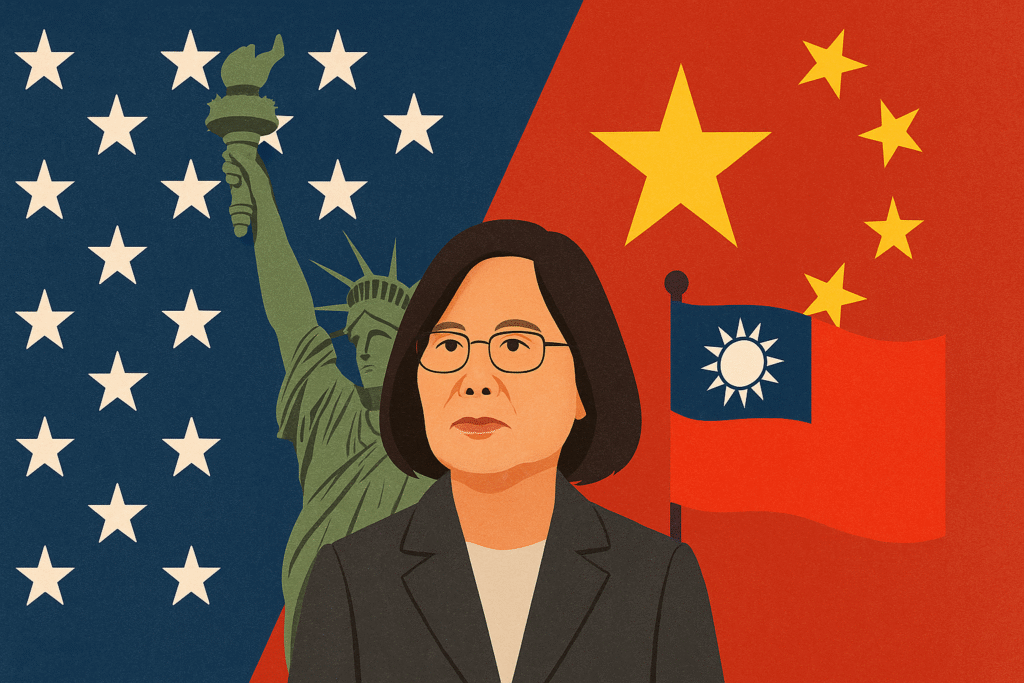In a move likely to escalate debate over U.S.-China-Taiwan relations, the Trump administration has reportedly denied permission for Taiwanese President Lai Ching-te to stop in New York during an upcoming diplomatic tour to Central America, following objections from Beijing.
Lai had planned to transit through the U.S. in August en route to Paraguay, Guatemala, and Belize—three nations that officially recognize Taiwan. However, according to sources familiar with the matter, the U.S. government informed Lai that a stopover in New York would not be permitted. His office in Taipei later announced that the president had no plans for overseas travel in the near term, citing ongoing recovery from a recent typhoon and trade discussions with Washington.
The decision has sparked concern among Taiwan’s allies in Washington, who worry that Trump is softening his stance toward China as his administration seeks a potential summit with Chinese President Xi Jinping. Sources also revealed that the U.S. Commerce Department had been instructed to freeze new export controls against China, aligning with ongoing trade negotiations.
China strongly opposes visits by Taiwanese leaders to the United States, which does not maintain formal diplomatic ties with Taipei. In contrast, the Biden administration allowed former Taiwanese President Tsai Ing-wen a stopover in New York in 2023 during a similar trip.
President Lai had reportedly reached out to the Heritage Foundation, a conservative think tank, to host an event in New York, and also considered a stop in Dallas. It remains unclear whether the restriction applied solely to New York or to any U.S. transit.
A senior U.S. official emphasized that discussions between both sides are ongoing and that no final cancellation has occurred. The Taipei Economic and Cultural Representative Office in Washington echoed this, reaffirming President Lai’s current lack of travel plans.
Former House Speaker Nancy Pelosi condemned the Trump administration’s decision, stating:
“Trump’s refusal to allow President Lai’s visit sends a dangerous signal—that the U.S. can be bullied by Beijing into silence on Taiwan. This is a victory for Xi.”
Bonnie Glaser, a Taiwan expert at the German Marshall Fund, warned the decision may embolden China, stating that Trump appears keen to avoid irritating Beijing as summit preparations intensify. She likened the move to past incidents where Trump delayed arms sales to Taiwan or reacted strongly to U.S. officials’ visits to the island.
“By suggesting the U.S.-Taiwan relationship is negotiable, Trump risks weakening deterrence and encouraging China to demand further concessions,” Glaser said.
Former Pentagon official Randy Schriver called the move reminiscent of past U.S. hesitations on Taiwan issues.
“This is the old playbook—‘tyranny of the calendar’—where there’s never a good time to support Taiwan,” he said.
Rush Doshi, a former National Security Council official, described the development as part of a broader trend of policy softening toward China.
“They’ve frozen export controls, allowed AI chip sales, and scaled back informal Taiwan ties,” he noted. “The risk is that Beijing will pocket these moves and demand even more—perhaps shifts in Taiwan policy or access to advanced U.S. technology.”
Amid the geopolitical recalibrations, some U.S. officials have invoked Deng Xiaoping’s strategy to “hide and bide,” arguing that China’s dominance in critical resources like rare earth minerals constrains America’s ability to push back forcefully.
As tensions rise, the Trump administration’s approach to Taiwan and China is being closely scrutinized, with critics arguing that strategic ambiguity may be giving way to strategic concessions.



